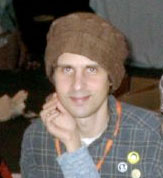A Quote by Daniel Levitin
Through studies of music and the brain, we've learned to map out specific areas involved in emotion, timing, and perception - and production of sequences. They've told us how the brain deals with patterns and how it completes them when there's misinformation.
Related Quotes
I learned how the brain is the softest organ we have - how soft the brain literally is and also how easily it can be manipulated. I think I will survive the whole thing, but there are lots of coincidences. For example, somehow I might have been trained to sustain stress through my life and through my art.
Music can move us to the heights or depths of emotion. It can persuade us to buy something, or remind us of our first date. It can lift us out of depression when nothing else can. It can get us dancing to its beat. But the power of music goes much, much further. Indeed, music occupies more areas of our brain than language does-humans are a musical species.
Since functional brain imaging first emerged, we have learned that there aren't very many brain regions uniquely responsible for specific tasks; most complex tasks engage many if not all of the brain's major networks. So it is fairly hard to make general psychological inferences just from brain data.
Dr. Leonard Shlain, chairman of laparoscopic surgery at California Pacific Medical Center, said they took some four and five year-olds and gave them video games and asked them to figure out how to play them without instructions. Then they watched their brain activity with real-time monitors. At first, when they were figuring out the games, he said, the whole brain lit up. But by the time they knew how to play the games, the brain went dark, except for one little point.
Fifty million Americans have dementia and other brain illnesses. To gather together the minds that exist and see how we can tackle these ailments together, that is the work that is in front of us: to have a map of the human brain, an understanding of the roadways, and an understanding of the traffic on the roadways.
Chunking is the ability of the brain to learn from data you take in, without having to go back and access or think about all that data every time. As a kid learning how to ride a bike, for instance, you have to think about everything you're doing. You're brain is taking in all that data, and constantly putting it together, seeing patterns, and chunking them together at a higher level. So eventually, when you get on a bike, your brain doesn't have to think about how to ride a bike anymore. You've chunked bike riding.
Mind mapping is a technique based on memory and creativity and comprehension and understanding, so when the student or a child uses the mind map, they are using their brain in the way their brain was designed to be used, and so the mind helps them in all learning and cognitive skills. It simply helps them in what the brain does naturally.
With any hallucinations, if you can do functional brain imagery while they're going on, you will find that the parts of the brain usually involved in seeing or hearing - in perception - have become super active by themselves. And this is an autonomous activity; this does not happen with imagination.
Through my life and my experience, I believe getting "positive mental attitude" is true. Your brain has certain pathways in it, and if you feed those pathways with certain types of thoughts, the blood goes to those neurons and nourishes them, and they grow and develop. That's how you build habits. Physically, I think that's how your brain works. If you have certain habits that are negative and causing you problems that you want to change them, you can actually change the blood flow and stuff in your brain by thinking a different way.



































